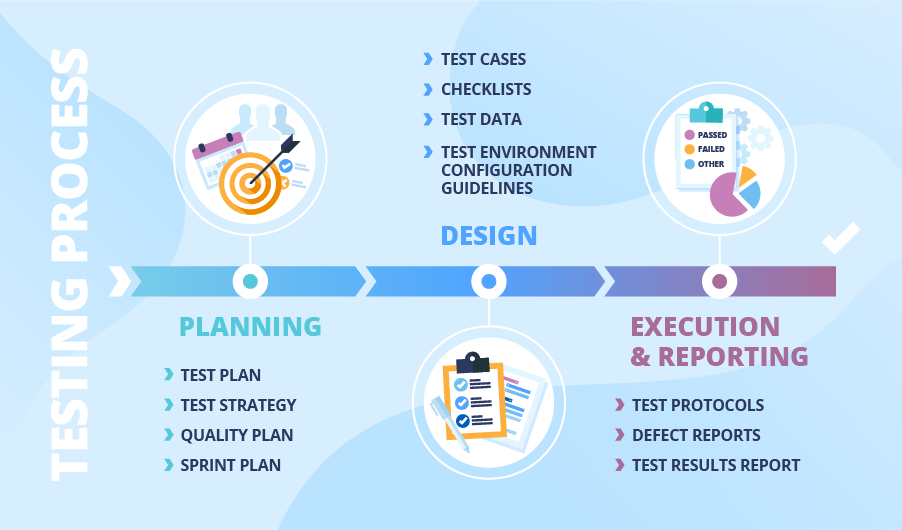Our Blogs

Quality Assurance
Introduction
In today's highly competitive and rapidly evolving business landscape, the importance of delivering products and services of exceptional quality cannot be overstated. Quality assurance (QA) plays a pivotal role in achieving this objective by ensuring that processes are well-defined, consistent, and continuously improved. In this blog, we will explore the significance of quality assurance, its core principles, and its vital role in enhancing customer satisfaction and organizational success.
Understanding Quality Assurance
Quality assurance is a systematic approach that encompasses all activities aimed at providing confidence in the ability of a product or service to meet customer expectations. It involves a comprehensive set of procedures, guidelines, and standards that ensure consistency, efficiency, and excellence across every aspect of a business process. While QA is often associated with manufacturing industries, its principles apply equally to software development, service-oriented businesses, and various other sectors.
The Pillars of Quality Assurance
The Role of QA in Customer Satisfaction
Customer satisfaction is the ultimate metric of success for any business. Quality assurance plays a critical role in enhancing customer satisfaction in the following ways:
Integrating QA into the Development Life Cycle
For quality assurance to be effective, it must be integrated into the entire development life cycle. From the initial design and planning phases to testing and post-launch support, QA teams work collaboratively with other stakeholders to ensure that quality remains a priority at every stage.
Conclusion
Quality assurance is not just a standalone process; it is the backbone of successful organizations across various industries. By instilling a culture of quality, investing in training, embracing data-driven decision-making, and continuously optimizing processes, businesses can stay ahead of the competition and achieve long-term success. Remember, quality is not a one-time effort; it's a commitment to excellence at every step of the way.
- By Hansa Joshi
Comments